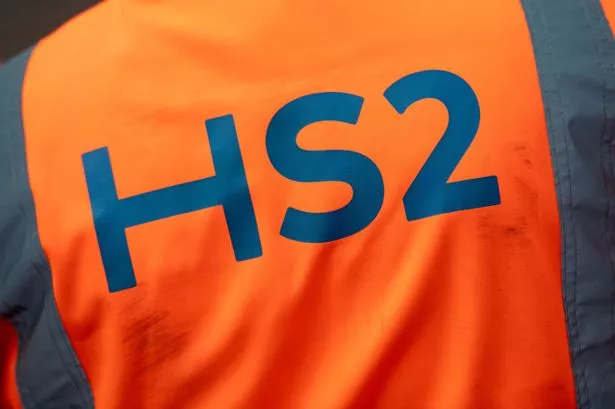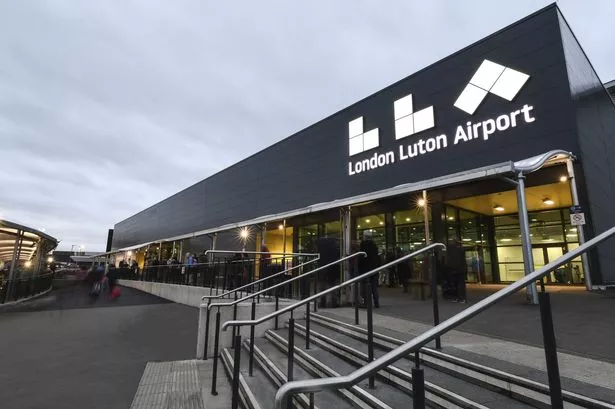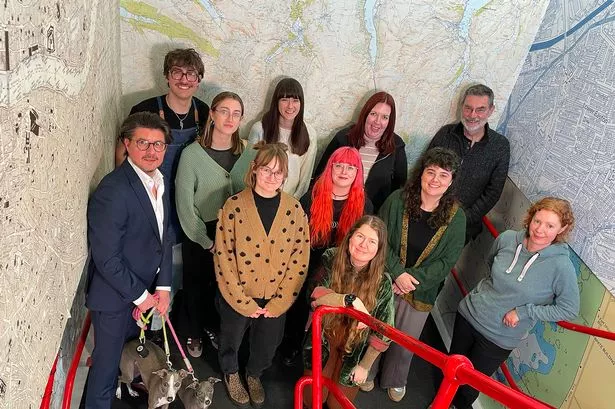
The chief executive of a construction company involved in the Old Oak Common station project has suggested that HS2 should concentrate on delivery rather than renegotiating its contracts.
This comes after a damning report from the Public Accounts Committee (PAC) last month deemed HS2 Ltd's contracts as "unacceptable to the public purse" and stressed the "imperative" need for the project to deliver on promises to renegotiate them, as reported by City AM.
Despite this, MPs have expressed doubts about whether contractors are sufficiently motivated to implement changes that would result in "significant cost savings."
When questioned about the potential restructuring of contracts, Balfour Beatty's outgoing leader Leo Quinn told City AM: "No, not really, the contracts for the time they were written were appropriate."
Quinn pointed out the impracticality of expecting any UK contractor to have the financial capacity to undertake such a massive project, stating, "There's no contractor in the UK that could actually have a balance sheet to deliver something of that size, so it has to go back to the Exchequer."
He further commented on the positive aspect of the nation's ability to shoulder such financial responsibility: "Isn't it good news in a way that the balance sheet as a country is able to carry that, because if you had actually put that liability down to all of your contractors, and the cost had overrun the way it's overrun, you wouldn't have a construction industry in the UK."
Quinn's remarks seem to cast doubt on HS2's assertions that it can secure more advantageous terms with its contractors, which is a key element of its strategy to control escalating expenses and get the project back on track.
Balfour Beatty, in a joint venture with engineering consultant Systra, is at the helm of constructing HS2's Old Oak Common station and also boasts a significant civil engineering contract for the project's Area North section.
HS2 executives had previously reassured the Public Accounts Committee (PAC) that "all major contractors" were open to discussions about renegotiating contracts. However, Balfour Beatty's chief executive Leo Quinn, in an interview with City AM, expressed a different stance: "If someone wants to renegotiate the contract, that's the wrong priority."
He emphasised the importance of timely completion, stating, "The priority is how do you get the project completed as soon as possible and motivate the contractors you've got to finish early."
When approached for a statement, HS2 chose not to comment.
Despite the challenges faced by the high-speed rail project, Quinn, who is set to retire this September after nearly ten years at the helm, remains optimistic about its prospects. He highlighted the collaborative efforts with HS2's team, led by Mark Wild, to ensure successful and punctual delivery: "We're working very, very closely with Mark Wild and the team to have a successful delivery. And we'll work flexibly with the client to make sure it gets finished and on time."
Quinn also shared his enthusiasm for the project's impact, predicting that visitors will be astounded: "When you come and see [HS2] your jaw will drop in terms of how awe-inspiring it is," he remarked. He views HS2 as a government investment that will develop skills and capabilities benefiting the UK for a century.
Addressing broader issues within the UK's infrastructure sector, Quinn reflected on the transformation since his early days at Balfour Beatty, describing the current state compared to the past as "night and day."
The Labour government has prioritised the rapid progression of major infrastructure projects as a key strategy to stimulate the UK economy. Earlier this week, ministers introduced comprehensive reforms aimed at accelerating the approval process for planning proposals, as part of the Planning and Infrastructure Bill.
Recent
See All2025-05-14
Bank of England reports dip in UK mortgage approvals and consumer credit in February
2025-05-14
Peloton suffers new UK losses with company continuing to slash jobs
2025-05-14
Multi-million-pound revenue boost for medtech firm TrakCel following US contract wins
2025-05-14
Luton Airport expansion gets go-ahead from government despite planners' advice
2025-05-14
Taskmaster makers' huge payday as profits soar at production company
2025-05-14
Viral Yorkshire cleaning brand The Pink Stuff to be snapped up by $7bn global group
2025-05-14
Banks Group strikes naming rights sponsorship deal with Durham Cricket
2025-05-14
Warning to low-paid workers as wage growth falls to lowest level in years
2025-05-14
FTSE 100 pharma giants GSK and Astrazeneca may have dodged Trump tariffs
2025-05-14
Bristol printing company becomes employee owned
Newsletter
Get life tips delivered directly to your inbox!










